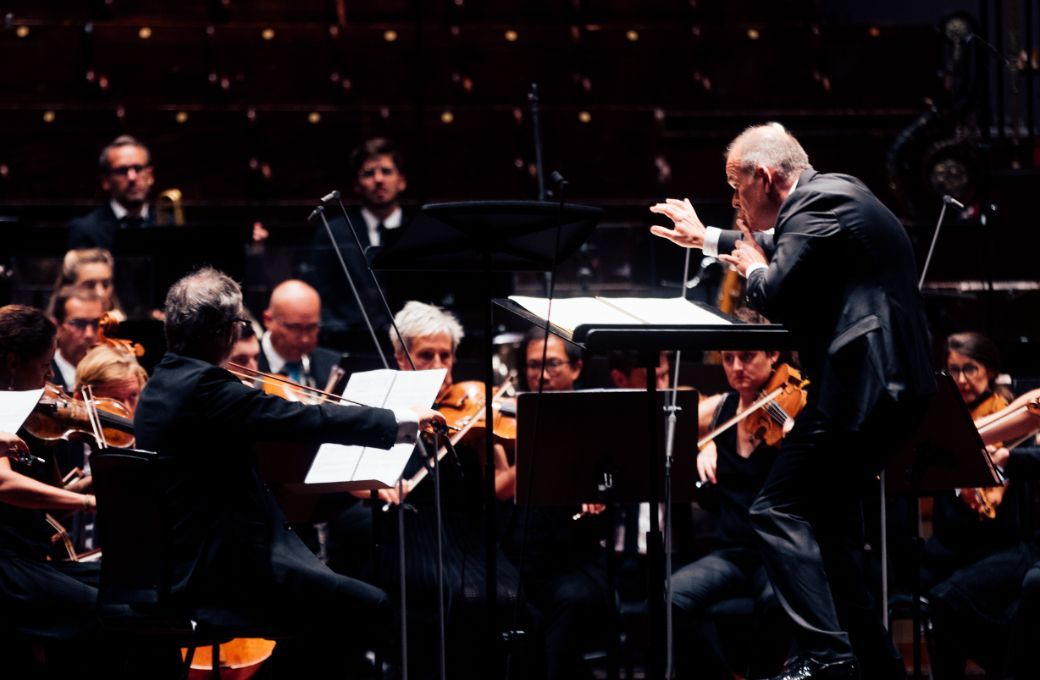Les Siècles, founded in 2003 by conductor François-Xavier Roth, specialises in matching period instruments to the music it plays, so creating the authentic sound of first performances. On their first visit to the Edinburgh International Festival, they focussed on Paris in 1913 with two important works, the first winning the coveted Prix de Rome, the second provoking a riot.

Aged five, Lili Boulanger sang along with Gabriel Fauré, her remarkable musical career progressing aged 19 to her entry for the 1913 Prix de Rome. The competition’s rules were prescriptive, with many well-known composers trying but failing to impress the judges over the years. Nevertheless, Boulanger’s cantata Faust et Hélène earned her the first woman to win the competition since its 1720 inception. Even so, she had to share the top prize with a man. Suffering from ill health, Boulanger died in 1918, a cruel blow, her compositions championed by her remarkable older sister, Nadia.
The cantata focuses on the moment when Faust awakens from a dream, demanding that Méphistophélès summon Hélène of Troy so that he could admire her beauty. Initially grumpy and unwilling to “add new crimes to the old ones,” Hélène is won over by Faust’s kiss, but the ghosts of blood-covered Hellas fighters arrive to take her back down to Hell. Despite warnings from Méphistophélès, as Faust and Hélène embrace, they sing “woe to us”. It does not end well.
Musically it is a lush work with Debussian influences, full of muted colours. Roth created a dreamlike opening with weaving strings, flowing solos and a beautiful restrained horn sound. Baritone Jean-Sébastien Bou was an ethereal Méphistophélès, tenor Julien Behr an ardent if a somewhat reserved Faust. Soprano Véronique Gens grew from warm beginnings to a passionate duet with Faust, the music becoming chromatic as disaster approaches. It is a lovely work but despite voluptuous impressionistic sounds, it felt somewhat slight given Eugène Adénis' passionate libretto.
There was no holding back the primeval passions for Stravinsky’s The Rite of Spring as the full orchestra took to the stage complete with eight horns, bass trumpet, contrabassoons and a mighty sarrusophone, complete with period woodwinds. Excitingly, the ranks of double basses were placed on the far left with two sets of timpani and percussion far right giving an organic antiphonal effect at high energy moments. We had no dancers, but it was fascinating to watch how Stravinsky’s extraordinary sound world was created. From the soft high bassoon opening, Roth balanced his players perfectly, allowing solos and colouring to emerge, be it piercing clarinet, the low buzz of the reedy bassoon growls or spectral alto flute. The period instruments from only just over a century ago were a revelation, often mellower than their modern counterparts, their distinctive timbres considerably richer and certainly earthier as the dancing rhythms built raw energy and excitement.
Roth conducted with sheer joy, moving between the uneasy tense calm of the slow introductions and silences, notching up the chaos with snappy rhythmic thuds in a whirlwind of pulsing strings and crashing chords. The extensive brass blazed, two Wagner tubas briefly adding piquancy to the heady mix and the four percussionists almost shook the building. This was a breathtaking, powerful and exuberant performance – no riots in Edinburgh, but a very excited audience.


